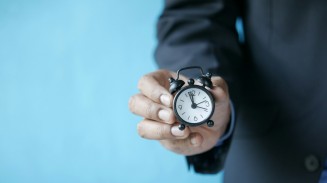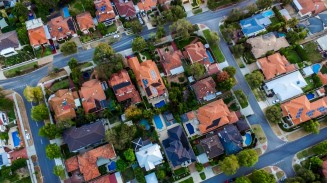Hong Kong lawmakers began a debate on Wednesday on a Beijing-backed electoral reform proposal that will define the city's democratic future and could trigger fresh protests in the Chinese-controlled city.
The former British colony has reinforced security after mass protests crippled parts of the Asian financial hub late last year, presenting China's ruling Communist Party with one of its biggest political challenges in decades.
Hundreds of people converged outside government buildings and the Legislative Council issued an "amber alert" before the crucial vote on the reform package, which is expected by Friday.
The final round of a poll conducted by three Hong Kong universities showed 47 percent of respondents backed the reform proposal, which would allow a direct vote for Hong Kong's next leader in 2017, but only from pre-screened, pro-Beijing candidates, while 38 percent were against. Fifteen percent were undecided.
Police were deployed inside the council complex overnight, and police sources said more than 5,000 specially trained officers would be on standby, while some roads leading to government buildings were closed.
"This morning I got a very long and well-written letter, which was from a student. (They) hope I will support the proposal," said democrat Ronny Tong, who was close to tears.
"I cannot think of anyone in Hong Kong who is happy today. I have been a legislator for 11 years, with an aim to fight for universal suffrage. Today I will cast a negative vote for an incomplete and unsatisfactory political reform proposal."
Activist groups said they expected 100,000 protesters to show up on Wednesday, although Beijing supporters easily outnumbered opponents of the package on Wednesday.
"The bill needs to go through. We have to support Hong Kong stability. We cannot keep carrying on like this," said a 60-year-old man surnamed Chan, who declined to give his first name.
"We have worked so hard all these years," said Chan, who was waving a Chinese flag. Pro-Beijing supporters also played the Chinese national anthem through loudspeakers.
Legislators started debate on the blueprint on Wednesday afternoon. Opponents of the plan say they want a genuinely democratic vote for Hong Kong's next leader.
Pro-Beijing supporters easily outnumbered democracy activists and, with temperatures hovering around 30 Celsius (86 Fahrenheit), crowd numbers had dwindled by early afternoon.
One pro-democracy protester wearing a black T-shirt which read "Reject Fake Suffrage", held a black-and-white banner that declared: "Overthrow the Communist dictatorship".
Inside the legislature, democrats stood in a row with small signs with crosses on them as they pledged to vote down the plan.
TENSIONS HIGH
Tension has been running high, especially after 10 people were arrested this week on suspicion of explosives offences. Six of them appeared in court on Wednesday charged with conspiracy to cause an explosion. The six were not asked to enter pleas.
A 29-year-old woman was let out on bail of HK$20,000 ($2,580). Five men were remanded in custody.
The ruling Communist Party's official People's Daily said in a front-page commentary that the vote was fundamentally about ensuring long-term prosperity and stability.
The proposed package, it added, was designed to be a broadly representative one all sides could accept while at the same time "reducing all sorts of risks universal suffrage could bring.
"Looking around the world, some countries' and regions' universal suffrage systems are not in line with the actual situation on the ground, causing social chaos, economic hardship and difficulties too numerous to mention," the paper said.
Beijing has tried to lobby Hong Kong's 27 pro-democracy lawmakers to back the blueprint.
Those democrats, who hold a crucial one-third veto bloc in the 70-seat Legislative Council, have so far pledged to oppose what they call a "fake" democratic model.
Hong Kong's Independent Commission Against Corruption has also said it was investigating allegations by an unidentified legislator that he was offered a bribe to vote for the package.
Hong Kong returned to China in 1997 under a "one country, two systems" formula that gives it a separate legal system and greater freedoms than the party-ruled mainland - and the promise of universal suffrage.
Thousands of activists blockaded major roads across Hong Kong for 79 days last year, defying tear gas and pepper spray, to press China to honor that promise.
While flawed, the package is still the most progressive electoral model ever offered by China's leaders in what might be a pilot for other cities within mainland China, according to a source close to Beijing's leadership.
If the plan is vetoed, Hong Kong's next leader will be selected as before by a 1,200-member committee stacked with pro-Beijing loyalists. Beijing would be unlikely to offer any fresh concessions to Hong Kong anytime soon.
Copyright Thomson Reuters. All rights reserved.
Get the Most Popular Lawyerherald Stories in a Weekly Newsletter





